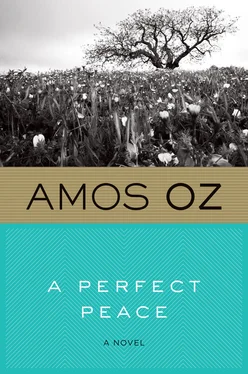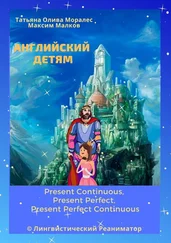I suppose you must have a mirror of some sort at home. Why don't you look in it for a minute to see if you can stand the sight of the loathsome guttersnipe, the repulsive sewer rat you've become. Goddamn your hide, you bloodthirsty, blood-sucking vampire, it's you and your ilk who've defiled and fouled up everything. Where were you while we were giving our life's blood to water this land and rebuild its ruins and those of the Jewish soul? Play-acting! Clowning! Piddling around! Piddling with Plekhanov, and piddling with Lenin and the October Revolution, and piddling some more with Zionism and a midsummer night's flirt with pioneering in Palestine. And once you'd sown your wild oats here, turning tail as quickly as you could to sell out to the Golden Calf.
It's not Hitler or Nasser but you and the likes of you who will be responsible, I repeat, responsible , for the destruction of the Third Temple. No power on earth can possibly forgive me for the moronic pity I showed in not digging your grave thirty years ago, when you were still just a kinky little syphilitic, sniveling insect. You are the lowest of the low. It's people like you who've been the poisonous cancer in the body of the Jewish people for generations. You're the age-old curse of the Exile. You're the reason the Gentiles hated and still hate us with an eternal, nauseated loathing. You with your money-grubbing, you with your Golden Calf, you with your foaming lechery, you with your swank way of seducing women and innocent goyim with sweet-talk, stopping at no betrayal, sleeping on your filthy ducats that spread like germs from country to country, from exile to exile, from racket to racket, homeless, conscienceless, rootless, making us a laughingstock and a pariah among the nations. And now you reach out your sticky paws to make off with our children just as you tried to make off with our women, to seduce and corrupt them until they've sunk as low as you are.
But why deny it, Benya? The fault is mine. Mea culpa! I'm to blame for it all, because I didn't do what any Ukrainian peasant worth his salt would do if he caught his wife in the haystack with some kike peddler — one blow of his ax and finis! I'm to blame for not remembering what our ancient rabbis always taught. He who pities the brute is brutal to those deserving pity. I spared you like a mooncalf, Benya, like the good compassionate Tolstoyan I once was. I handed you your life on a platter. I helped you get away by the skin of your teeth, and now Hava calls me a murderer. Which I am indeed, because you with your threering circus and she with her black widow's poison are planning to hypnotize my son into joining you in Florida. No doubt you'll send him a ticket and a sack stuffed with dollars and take him into your business to be a racketeer like yourself, after which you'll have a good belly laugh at how you made a monied gentleman out of Yolek Lifshitz's son, one just like his mother's father in the shtetl, that pot-bellied swell with his thumbs stuck in his belt on both sides of his paunch. My Yoni, in whom I hoped to see our dreams come true, the first of a new line of Jews whose children and children's children would grow up in this land to put an end to the malignancy of the Exile. And now the Exile is back again, masquerading as a rich uncle. You traitor to your people, you. Goddamn your soul, Trotsky, may it rot in hell! And about that donation, the answer is, forget it. You can keep your filthy money.
Yolek Lifshitz tore this letter into little pieces and threw them into the toilet, which he carefully flushed twice. Wasn't it the Romans, by the way, who first said that money has no smell? If he wants to make a donation, by all means. All kinds of strange people give money to Israel without having their credentials checked first. We even accepted reparation payments from the Nazis. Yolek donned his winter coat and put a cap on his head. He decided to take a walk to cool off.
Halfway along his planned route he decided he must go see Yonatan and Rimona immediately. Almost at once, however, he recalled that that Gitlin fellow often spent his nights with them, and, changing his mind with a shrug, he resumed walking downhill in the direction of the cowshed and the chicken runs. The grounds were deserted as only village paths on a winter night can be. The rain had stopped. The wind had died down.
Three or four stars peered coldly through racks of tattered clouds. Twinkling. For a moment, Yolek thought of them as no more than pinpricks, little moth holes in a heavy velvet curtain, beyond which shone a vast, terrible illumination, a blinding, molten incandescence. And the stars themselves, it seemed to him, were but the faintest of allusions to the great storm of light raging behind that veil. As though the vats of heaven had sprung a few tiny leaks and several drops of bright liquid clung glistening to their black undersides. Yolek found comfort. He walked slowly, thoughtfully, breathing deeply of the sharp, keen air, taking in all the barnyard smells, charged with the heavy sensuality of a caress. When had he last been caressed like this? Long, long ago, not counting the few politically active widows or divorcées who had dragged him almost forcibly to bed, and that far from recently. Nature alone, so it seemed, cared enough for everyone, even a nasty intellectual, to ensure them all a few years of mother love. The whole thing is very strange and rather pathetic, thought Yolek, recalling that his own mother was the last person really to fondle him. Starlight on a winter night was no doubt to be taken auspiciously, but life was basically a rum business.
Thick, sour fumes steaming out of the chicken run. Sheep giving off a warmish odor of manure. A stream of liquid compost flowing out of and back into the darkness from the sopping hay. The breathing of the cows. The calm, drowsy, winter-night thereness of the farm animals.
Have I wronged my son, too, then? Am I really the cause of his suffering? Whatever made him choose a woman like Rimona? Was that his idea of punishing someone? Himself? His mother? Me? So be it, thought Yolek. Each of us will have to bear his own cross. Though if it weren't for that tragedy I'd be a grandfather now. Every day at three-thirty I'd arrive at the nursery ahead of all the parents to have the boy to myself. I'd take him on my shoulders to the swings. To the fields. To the orchards. To the lawns. To the sheep pen and the chicken run and the cowshed. To the peacock cage by the swimming pool. And shower him with candy, whole bribefuls of it, endless heaps of hush money despite all my principles. And kiss him quite shamelessly in front of everyone, toe by toe on his little feet. And frolic with him on the grass like a boy myself on summer days. And spray him with water from the garden hose and get as good as I give. And make him funny faces as I never did for my own sons. And moo and miaow and bark, all for the price of one little caress. And make up no end of stories about animals, and ghosts and goblins, and trees and stones. And rise at night long after his parents are asleep and sneak like a thief into the nursery to kiss him on his little head.
Far away, across the border, lights twinkled in the mountains. Yolek Lifshitz raised his coat collar, pulled down his cap against the cold, and stood looking at them. For nearly ten minutes he did not budge, entirely drained of the old passions and high principles that had guided him all his life. As though the answer had been obvious from the start, he had suddenly made up his mind. Frosty, hushed, and desolate the night, pinioned against the sky and earth. Yolek waited so until he saw a falling star. And begged for mercy.
Tia lay sprawled beneath the touch with only her hairy tail sticking out, now and then thumping the rug. The heavy brown curtains hid the window and the door leading out to the porch. All was at peace. The heater was lit, as was the reading lamp at the head of the couch. The overhead light was off.
Читать дальше












